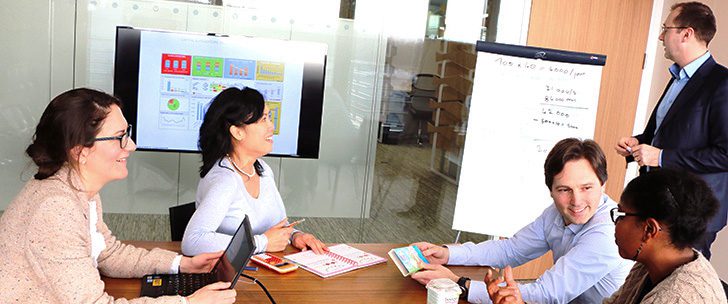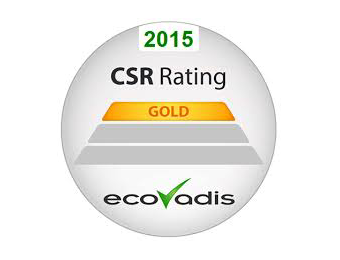Purchasing at Bel

Our purchasing policy
Bel’s Purchasing teams handle company purchases with a view to performance and a commitment to building trusted and long-lasting relations with the Group’s suppliers everywhere in the world. This policy ties directly to Bel’s business model, which is based on the belief that reconciling rigorous management with exemplary practices, profitability with integrity, and growth with ethical behavior is both possible and vital.
Our purchasing families
Purchasing is organized around six main purchasing families.


To meet consumer expectations for quality and taste, the Bel Group takes the utmost care to select the dairy raw materials and ingredients used to make our products, such as the liquid milk collected from producers close to our plants, cream, butter, cheese, milk powder, etc.
These raw materials, which are provided by strictly approved suppliers, are subject to stringent food safety and tracking requirements and must come with all the guarantees needed to obtain finished goods that meet a high standard of quality.
CloseBel's industrial knowhow is unique. It drives productivity and sets us apart, notably with single-serving portion formats, which deliver quality, satisfaction and practicality to consumers.
We select best-in-class partners of the highest quality and technical capability to support our unique knowhow.
CloseAs a world specialist in single-serving portions, packaging plays a major role in guaranteeing the food safety, taste and wholesomeness of our products and in communicating with consumers.
Beyond packaging cost and quality, we pay particular attention to our partners' capacity for innovation and corporate social responsibility (CSR) criteria. For example, we select cardboard from sustainably managed forests and, whenever possible, we favour cardboard made from recycled fiber.
Packaging types include cardboard to be embossed, corrugated cardboard, aluminum, plastic, paper, etc.
CloseOur products are distributed in 130 countries. Accordingly, transportation and logistics providers must guarantee the integrity of our products' quality and their availability throughout our supply chain to our consumers.
Beyond cost, we pay close attention to ensuring that the cold chain is fully respected and that the carbon footprint of our transporters is limited.
ClosePurchases of indirect goods and services encompass all purchases not used to make our products.
Such purchases break down into four main categories:
- Marketing services aimed at raising familiarity with our brands and to support consumers at the point of sale;
- IT and telecommunication services;
- Consulting services;
- Selling, general and administrative (SG&A) expenses, such as travel and lodging, facilities management, etc.
To meet the highly diversified needs of the Group's functions and employees, we select service providers capable of making the most relevant contributions to our operating efficiency, innovation and sustainable growth.
CloseBel's growth strategy is driven by the international development of its brands. To enter new markets or to design new products, the Group may decide to work in close collaboration with subcontractors. In such cases, we subject our partners to the same quality standards and demands in force at our own 30 production sites.
Approval priority is given to partners who are certified GFSI and committed to continuous improvement initiatives in the areas of the environment (ISO 14001) and employee safety (OHSAS 18001).
CloseOur sustainable purchasing policy
A signatory of the United Nation’s Global Compact since 2003, the Group has approved the Global Compact’s ten fundamental principles and has reported its United Nations Global Compact Communication on Progress (COP) at an “Advanced” level since 2013.
Bel bases its development on a sustainable growth model that demands collaboration in each step of the value chain, from suppliers to customers.
Bel’s Sustainable Purchasing Charter is a tangible reflection of the Group’s strong commitment to encourage the application of its sustainable development principles among its suppliers. This Charter presents Bel’s commitments to its suppliers and details what the group expects from them in return in terms of major societal issues, i.e. respect for the environment, labor and human rights practices and business ethics. It also reminds vendors to be vigilant about their own suppliers meeting sustainable purchasing commitments.
By working with Bel, suppliers commit contractually to following the Sustainable Purchasing Charter and to participating in a continuous improvement initiative.
CSR-related demands specific to each purchasing category may be integrated into the specifications of our calls for tender and contracts, depending on the main challenges and identified risks.
In addition, we have integrated CSR criteria into the annual ratings of our suppliers and subcontractors.
Assessing suppliers and their CSR performance
We ask our buyers everywhere in the world to integrate CSR criteria into the selection and performance tracking of their suppliers. Regularly, we conduct campaigns to assess and reassess the CSR performance of our suppliers and subcontractors deemed as priorities by virtue of the size of their business with the Group, the potential risk associated with the products and/or services they provide, or their geographical location.
To that end, Bel uses EcoVadis®, a service provider with recognized expertise in sustainable development. Based on the risks and/or the CSR demands associated with each of our purchasing categories, suppliers participating in calls for tender may be asked to undergo an EcoVadis® assessment. The assessment is based on 21 criteria grouped around four themes, including:
- Environment,
- Respect for labor and human rights standards,
- Business ethics,
- Suppliers / Supply chain.


To meet the same demands as its suppliers, the Group is regularly assessed for its CSR performance. With an EcoVadis score of 74 out of 100 in 2015, Bel has maintained it Gold status and ranks in the top 2% of companies evaluated by EcoVadis around the world.
Become a Bel supplier
The Bel Group wants to work with suppliers that share its values.
Bel’s Code of Best Business Practices provides a set of common rules applicable to Bel and its suppliers. The Code is based on seven key principles to apply in all circumstances when doing business with Bel. The effective application of these principles and rules by suppliers is an element that opens the way to initiating the selection and pursuing all business relations.
Bel also selects suppliers able to provide a competitive advantage to the Group. Encouraging suppliers to innovate and supporting the development of their exclusive solutions rank among Bel’s purchasing policy priorities.

In collaboration with Bel's function departments, buyers prepare a list of suppliers to consult for each call for tender.
CloseWant to publicize your products or services?
Please complete the online form on our Sourcing@Bel Purchasing Portal.
CloseThese evaluations are carried out by independent, specialized service providers or by Bel on an ad-hoc basis.
CloseWe seek to avoid any economic dependency between Bel and its suppliers that could jeopardize either of the two parties.
CloseSuppliers who are active in sensitive purchasing categories must systematically sign a confidentiality agreement.
CloseThe majority of our calls for tender are made via our e-sourcing platform, Sourcing@Bel, which ensures transparency and fairness.
CloseBeyond cost and completing the necessary paperwork, we integrate criteria such as quality, deadlines, risk management, CSR performance, innovation, and the supplier's capacity to support the Group in its international development.
CloseThe contractual documents spells out the commitments of Bel and its suppliers.
CloseInvoices should be sent to the address indicated on the purchase order and must contain the order number communicated by Bel.
CloseBuyers conduct regular supplier performance assessment, which encompass quality, deadline, competiveness, innovation, CSR, and environmental criteria.
CloseBuyers in charge of supplier relations lead a continuous improvement initiative through mutually respectful and transparent exchanges.
Close